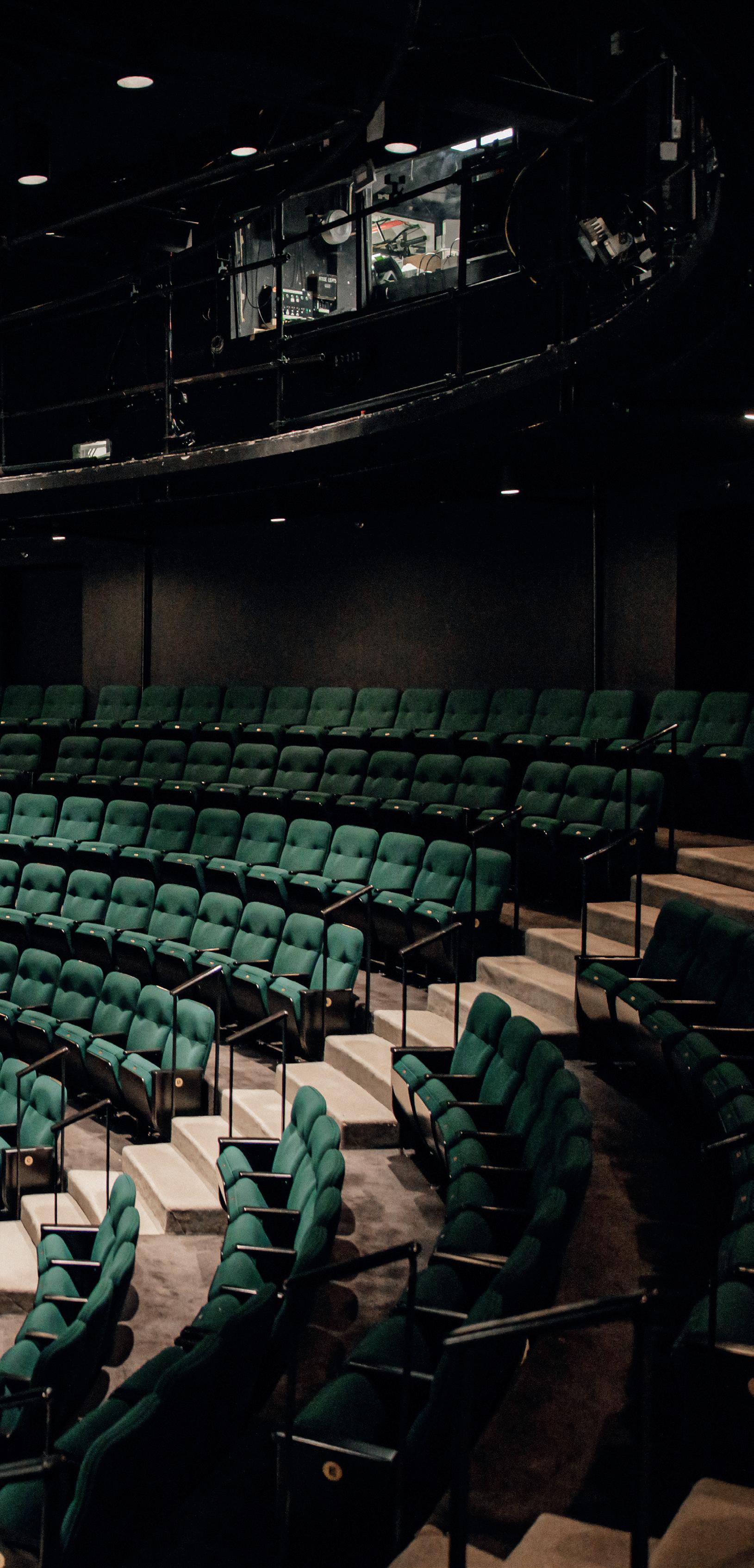
5 minute read
TRUSTING THE PROCESS
J.T. ROGERS
LATE LAST SPRING, I was in my apartment in Tokyo when I received a phone call from André Bishop. I had been in Japan for most of the last two years, overseeing a television series I’d created. It was the crack of dawn for me, early in the evening for André, who was in his office at Lincoln Center Theater with Jenna Clark Embrey, the dramaturg at LCT. Bartlett Sher was on the line as well, in his cramped office off the Beaumont lobby. I was a few years late on a commission for LCT, but this call was about a different play to be called Corruption, about the Murdoch phone hacking scandal in the UK. I had pages, I knew where I was going, but I was a long way away from a finished script. At Bart’s urging, he and I were proposing I finish the play through a series of workshops at LCT, then open in the Mitzi the following spring. André listened silently as I spoke at length about why I wanted to write the play, about how much I wanted to come back and work at my theatrical home. When I was finished, he asked only one question: could I have it ready for rehearsal at the top of next year? “Yes,” Bart jumped in, “he can.” “Okay, then, let’s do it,” André said. “But, J. T., please have it done on time. Or we’ll have an empty theater.”
Could a playwright ask for anything more from an artistic director? Across seventeen years, over the course of three plays, André has patiently, fiercely championed my work: guiding with the lightest of touches, giving few but always superb notes, and staying hands-off or being hands-on as the moment required.
For our first meeting in 2007, I arrived at our lunch as a bundle of anxiety. I was being commissioned by LCT, the theater I had spent my life attending. What if its storied artistic director didn’t like my ideas? I fumbled out rough thoughts about two different potential plays. When I was done, André nodded. “Well, those both sound wonderful. I just think you should write whatever you want. All I ask is that it be something you think—realistically—would work in the Mitzi.” And that was that.
A few years later, when I gave him my play Blood and Gifts, he allowed London’s National Theater to do it first because they had a slot free before LCT did. As André put it to me, how could he deprive a playwright of the income that a long run at another theater would provide? When we did the American premiere, he strongly suggested I go with Bartlett Sher as my director, telling me that we were an ideal match. How right he was.
Before the run of Blood and Gifts in the Mitzi was over, Bart and I talked to André about our idea for Oslo and he commissioned the play on the spot. Over the seemingly endless years it took me to research and write Oslo, he would patiently prod me now and again, gently inquiring as to whether perhaps the play might be ready soon. When I finally turned in a first draft, André programmed it, then funded a series of weeklong workshops in which Bart and I continued to hone the play.
When the first preview of Oslo ran over three-and-a-half hours, his only comment was, “Well it works and no one left at either intermission, but we can’t do that twice on Wednesdays and Saturdays.” As I cut (and cut and cut) through the rehearsal process, he came to performance after performance, occasionally offering a judicious suggestion but more often simply being there to show his support. When we moved the play to the Beaumont, his only request—“and this is a request, J. T., not a demand”—is that I find a way to trim the play to under three hours. I cut further, but the running time was still tipping over three hours. Then Bart hit upon the idea of eliminating the second intermission and eliding acts two and three. I agreed we should try it, but André was against it. He was adamant that the play needed two intermissions; the author put them in for a reason. He was so concerned for the play that he flew back from vacation in Maine to watch the performance where we tried our grand experiment. We three watched together. When Bart’s bold suggestion clearly worked, he told us he was delighted to be wrong, and went back to Maine.


And now Corruption. This year and last, the process of workshopping and staging the play has been infused with the poignancy of knowing this would be my last time doing a play at LCT along with André. Each meal together discussing the script, each meeting about casting, each note given during previews felt bittersweet. Closing night, as the audience filed out he looked at me. “Well, J. T., thank you, again, for a wonderful play. I’m just sorry I won’t be here to see your final commission.” He smiled. “That will be the one that got away.” There were so many things I wanted to say. So many more thank yous I wanted to give. I smiled back at him. “Of course you’ll get to see it. We’ll sit here in the audience and watch it together.”










